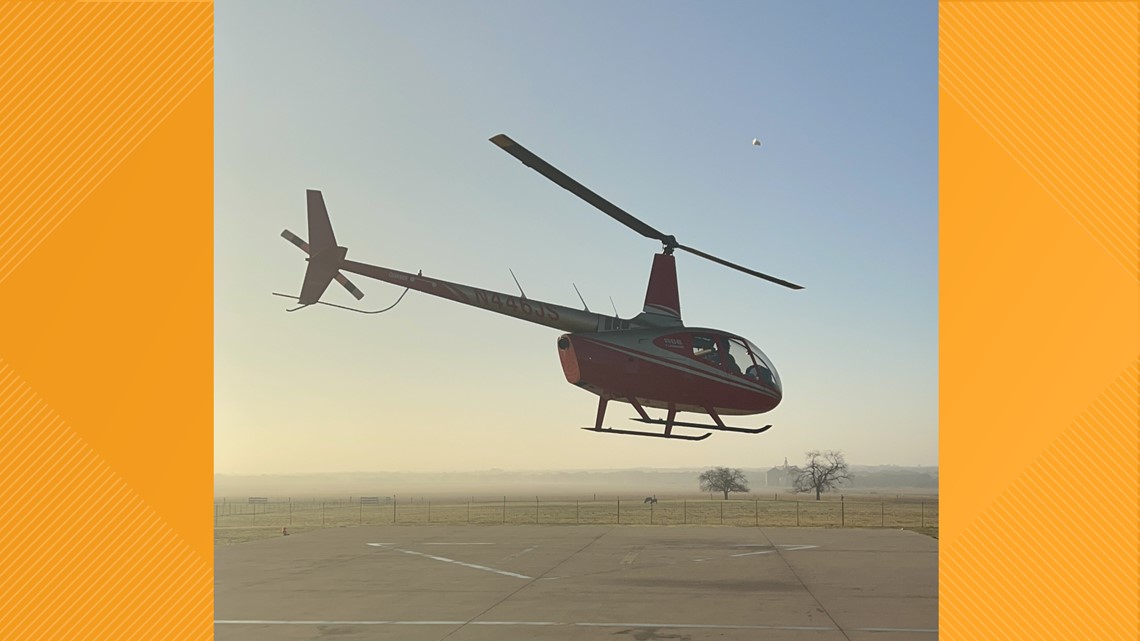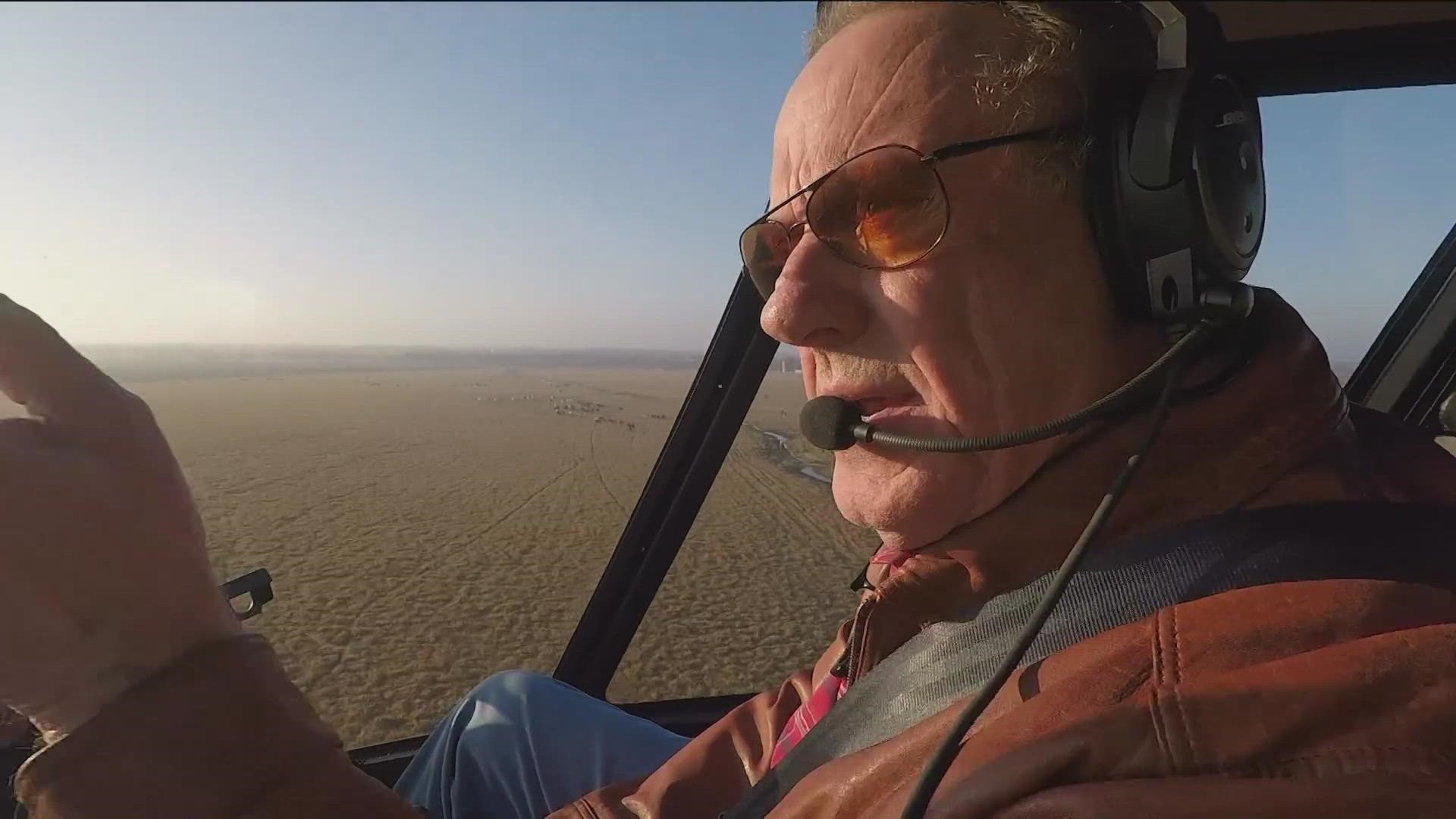SCHWERTNER, Texas — If you've had a steak or a burger lately, there's a good chance the beef made it's way through Schwertner Farms in Williamson County.
Jim Schwertner runs the ranch, which is a family business that dates back to 1946. In the 77 years since the ranch was first created, the technology used on the ranch has advanced way beyond any rancher's dreams.
"My horse now is my helicopter, I have a Robinson 66," said Schwertner. "I go out every day and check the cattle. It took my father a week in the suburban to see it all and I can see it in half a day in the helicopter."


While his mode of transportation no longer requires a saddle, Schwertner still has the basics of the cattle industry down pat - after all, it's in his blood.
"We've been in business a little over 77 years now. I'm fourth generation, my son who works here is fifth generation," Schwertner added.
As President and CEO of Schwertner Farms and Capitol Land and Livestock, Schwertner has a trusty team of more than 125 employees.
Combined, the two businesses run a complex, multi-million dollar operation that covers roughly a little over 20,000 acres.
"We're one of the largest livestock dealers in the United States of America," said Schwertner.
Schwertner's company acts like day traders on the stock market, but with cattle.
"We're cold calling and calling new customers and working new leads," said General Manager Ben Sublett.
"We'll do $2 to $3 million worth of business a day. It is all done over the phone on a handshake. We have no contracts. It's all verbal and that's the way the industry is," added Sublett.
The business has come a long way since Jim Schwertner's grandfather, Adolf Schwertner, first arrived in Texas in 1877 as a teenage cotton farmer from Austria.
In 1946, Capitol Land and Livestock was founded by Jim Schwertner's father Eugene. Eugene Schwertner built a reputation for his shrewd business acumen, especially when it came to cattle auctions.
"My dad used aviation in the 40's. People couldn't figure out how he could get to the cattle the quickest and he would charter a plane with a pilot and he would get to the cattle quicker to anybody," said Schwertner.
The Schwertner family has survived recessions, inflation and the passing of the company from one generation to the next. But it's the climate that has actually been one of the toughest things to weather.
"Weather is something we have to watch all the time. For example, in the middle of December when the temperature was 60 degrees and that night it was 19, it's really hard on the cattle," said Schwertner.
But just as volatile as the Texas weather has become, so has the cattle business itself.
"It makes the stock market look like child's play. It can move five percent in two hours and so the way we hedge our risk is we never own anything over 24 hours," added Schwertner. "So we either sell them direct to the feedlots or we sell them to the customer and they put them on our weaning program for 45 days, but we never own them over 24 hours."
Annually, the company moves nearly half a million cattle through its facility. Their land straddles Williamson and Bell counties near Jarrell, and it's become prime real estate sitting close to the ever-increasing urban sprawl.
"When I watch Yellowstone, I think of our operation because, you know, people are calling me all the time wanting to buy some of our land. But, you know, we we're in the cattle business. We're not in the development business," Schwertner said.
And being in the cattle business is something Jim Schwertner is awfully proud of.
"Somebody's got to feed America. That may sound ridiculous but I'm serious about that. You know, when I got out of college about 4% of the population in America was in agriculture, feeding America. Today only 1% of the American population is in agriculture. Think about that. When you go to HEB you buy food there that was produced by only 1% of the American population. I mean, that's unbelievable," said Schwertner.

